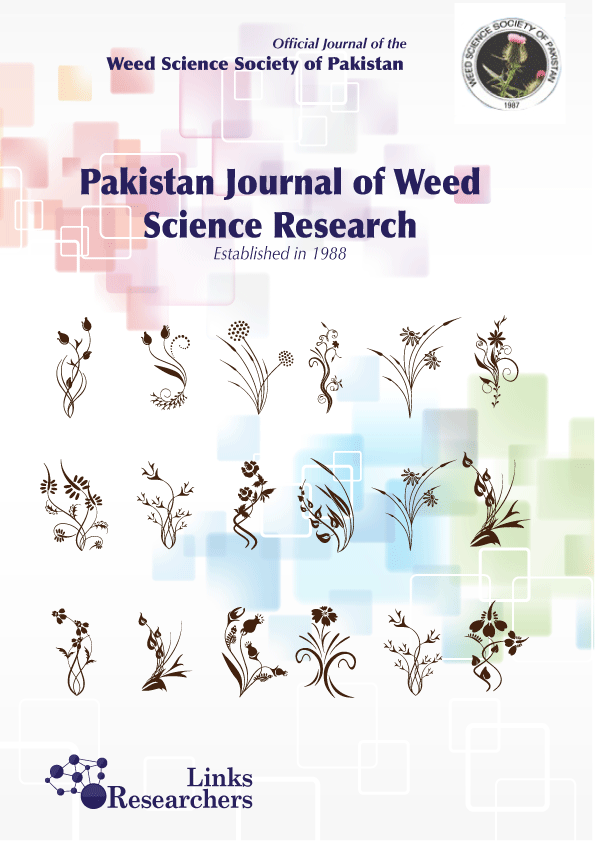Two separate experiments were conducted to examine the effect of various water regimes
and herbicides on sprouting of common reed (Phragmites australis L.) rhizome fragments.
Each experiment was laid-out in completely randomized design (CRD) having water levels
and herbicides as treatments, replicated thrice. Five fragments of fresh rhizomes with active
buds were placed in the soil in pots for investigating the effect of various water regimes on
sprouting of common reed. Sproutings were examined up to two months. While in the 2nd
experiment post emergence herbicides were applied to the re-sprouts to check the efficacy
of various herbicides against common reed management. Various water regimes affected
the re-sprouting of common reed rhizomes. The lowest sprouting (6.66%) were noted in
control treatment where no water was applied except at the time of placing the rhizomes in
the pots, while maximum (96.66%) sprouting observed within (T3) water was applied from
5th to 7th weeks (5 times). While in the 2nd experiment herbicides significantly affected the
re-sprouting ability, growth and biomass production of common reed and minimum resprouting
and shoot biomass (3.33% and 6.00 g), respectively, were noted for fenoxapropp-
ethyl as compared to control treatment (90.00% and 38.67 g) where no herbicide had
been applied. Therefore it is concluded from the results that on either side from water
regime (T5) the re-sprouting ability decreases and buds mortality increases.





